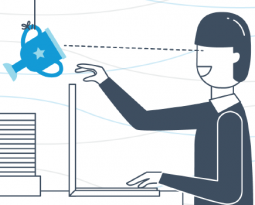In developed markets around the world, businesses of all sizes are quickly gravitating toward cloud computing. The advantages are clear: access to enterprise-level software solutions and cutting-edge technology without a capital investment in infrastructure, as well as remote access. The cloud and SaaS allow SMEs to do business with major players, but the adoption of cloud computing in the Asia-Pacific region has been slow.
In 2014, Asian SMEs spent $2 billion on cloud services. That might sound like a lot until you consider that SMEs make up more than 90 percent of all businesses in Asia. One reason for the lagging adoption of cloud services is lack of familiarity: In one survey, only 3 percent of business owners in Indonesia said that they thoroughly understood cloud technology. In Japan, commonly considered a high-tech market, only one-third of business owners said they understood the cloud.
Another reason is infrastructure. In developed economies, the cost-saving potential of cloud computing is clear. In many developing markets, on the other hand, business owners would have to invest in infrastructure before they could even use cloud services, which presents a major obstacle for some. Another reason, however, relates to concerns about security, especially when it comes to Payroll and other HR functions. Given recent headlines blasting stories about even the largest companies being infiltrated by hackers, a lot of SMEs wonder if it’s safe to use the cloud for Payroll functions. Is it?

The answer is a clear “yes” for companies that choose a reputable, well-vetted provider. There are three main reasons for that: hardware, software, and people.
Hardware
It’s a fact of life in both the personal and business arenas: Hard drives crash. It’s frustrating when that happens on a personal computer, but think about the ramifications for businesses that don’t back up all of their computers nightly: One spilled cup of coffee could wipe out all of their payroll data. That creates a real hardship for employees counting on their paychecks, and it’s an unnecessary waste of time and money for the business. It can also result in big problems with governments that hold businesses accountable for maintaining accurate records. Cloud-based payroll services, on the other hand, come with built-in redundancies. The data is never lost, regardless of what happens to physical hardware.
Software
Data doesn’t get much more personal than the kind that’s stored in payroll systems: Names, addresses, ID numbers, and bank account numbers are all pieces of information that can be used in identity theft. And, since cloud-based information is theoretically accessible through any device, business owners worry that it’s an easy target for hackers.
The reality, however, is that threats to data security are constantly evolving, so the protocols that protect that data have to evolve just as quickly. Staying on top of things like software updates and scanning for threats can be challenging for SMEs. For third-party payroll providers, however, those are core competencies. Those activities aren’t just part of doing business; they are the business. And, with providers that use SSL technology (and all reputable providers do), data is also encrypted.
People
One major risk for businesses of all sizes is the failure of employees to follow standard security protocols. Using the same password for everything, writing passwords down and leaving them in plain sight, and using passwords that are easy-to-guess can render even supposedly “fail-proof” data security useless.
Third-party providers, on the other hand, practice data security as a core competency. Their employees are much more likely to be well-trained on security protocols, and compliance with those protocols is more likely to be monitored and enforced. In addition, third-party providers are more likely to use two-factor authentication, like requiring employees to enter a PIN texted to their phone in addition to their password. Therefore, security risks caused by human failure are less likely with an outsourced Payroll provider.
The sensitive nature of payroll data makes many business owners hesitant to outsource it, even if they do outsource other HR functions. In reality, however, reputable vendors can provide even better security than SMEs, because doing so is a core competency. It’s what keeps them in business.







